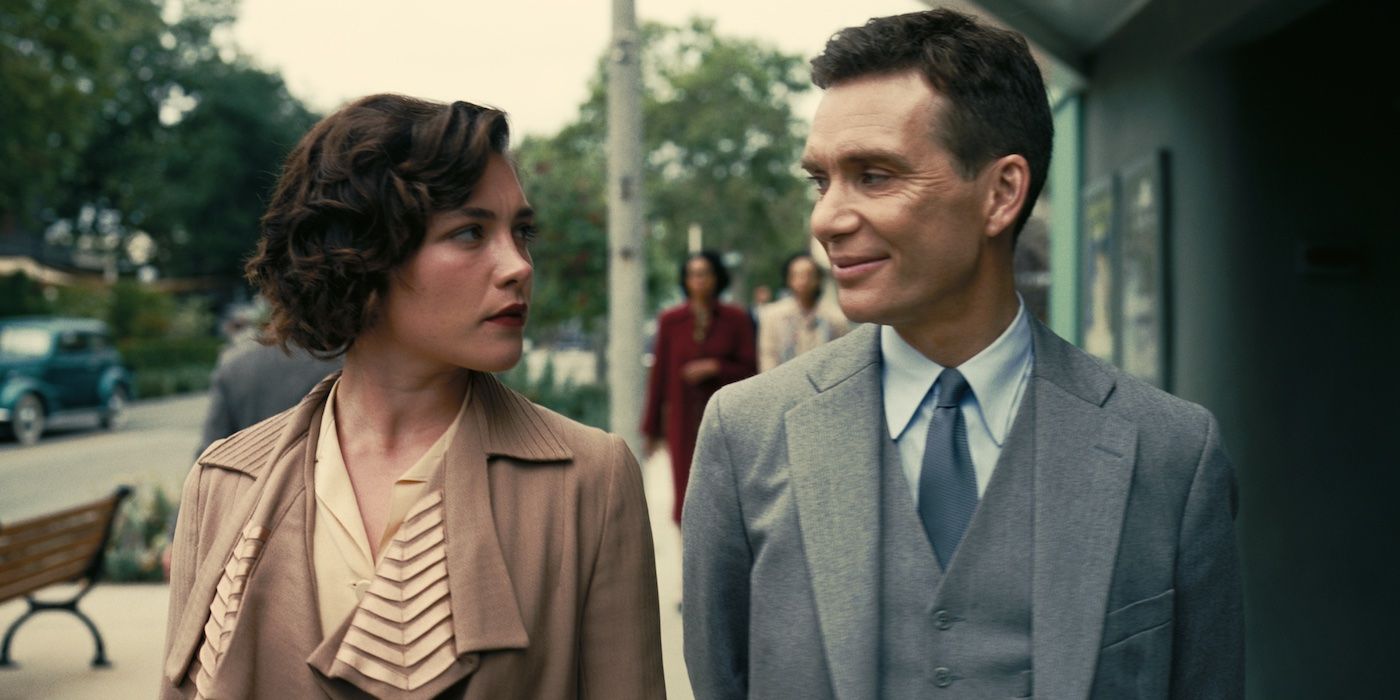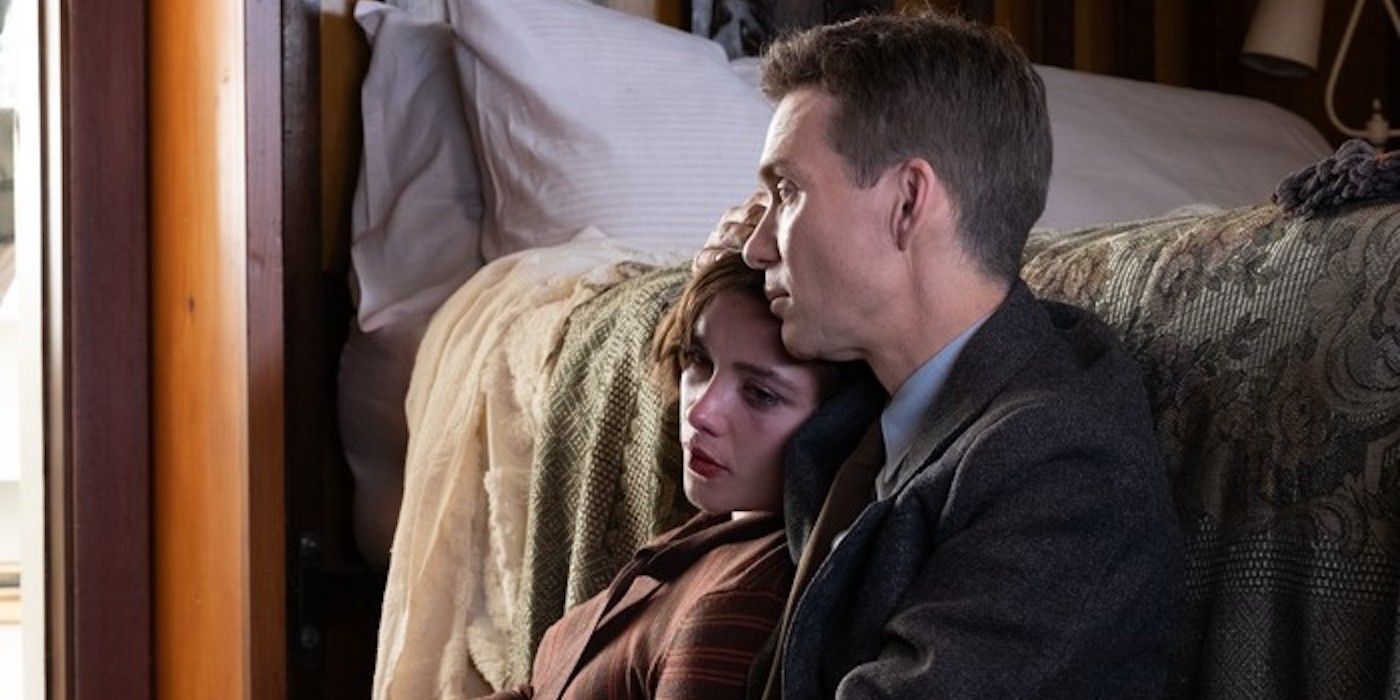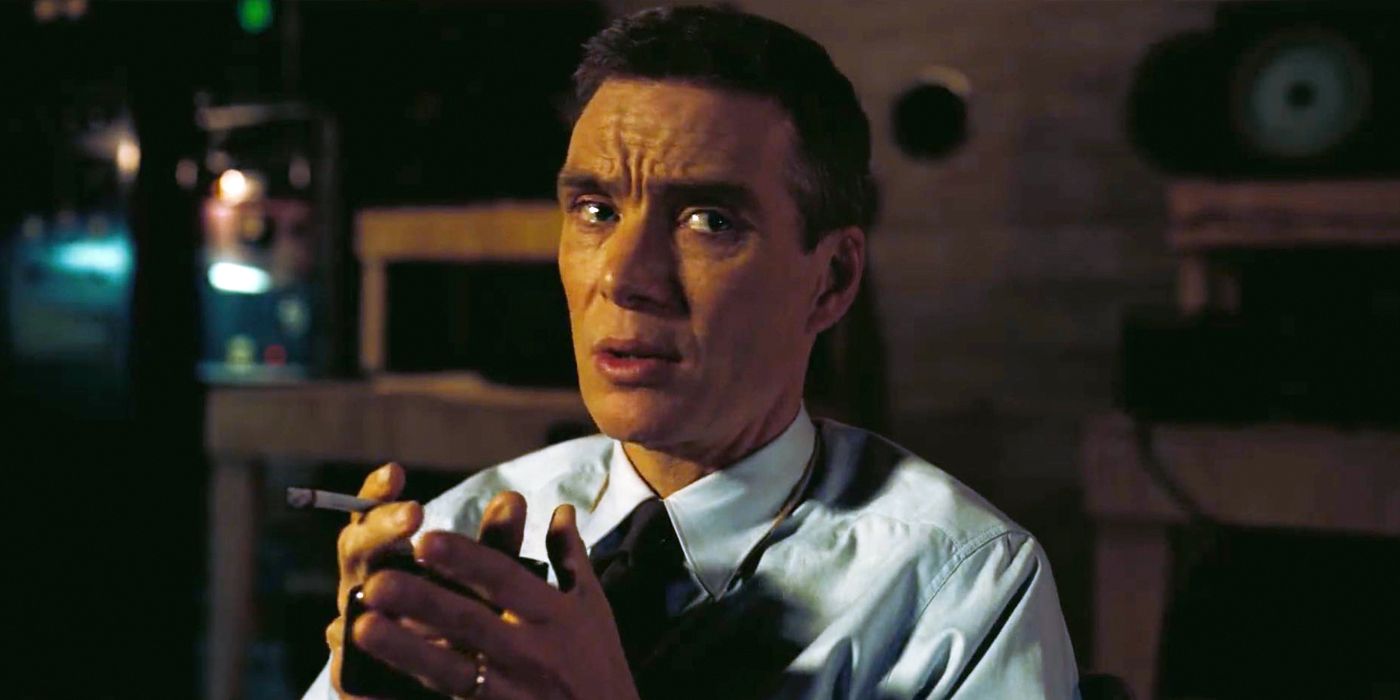The Big Picture
- Christopher Nolan's Oppenheimer is a must-see experience in theaters, with a star-studded cast bringing the real-life figures to life.
- Jean Tatlock, a psychiatrist and communist party member, was a pivotal figure in J. Robert Oppenheimer's life, despite their tempestuous relationship and her tragic fate.
- Speculation surrounds Jean Tatlock's death, with some suspecting foul play, although the official cause of death was determined to be asphyxiation by drowning.
Christopher Nolan's Oppenheimer quickly became one of the year's biggest movies, being revered by critics and taking over the box office. As the director's first foray into biopic territory, the three-hour epic features a cast stacked with A-list performers playing real-life figures. Cillian Murphy leads the film, playing the titular physicist and Father of the Atomic Bomb, Emily Blunt as his wife Kitty Oppenheimer, Matt Damon as Lieutenant General Leslie Groves, Robert Downey Jr. as Lewis Strauss, and Tom Conti as Albert Einstein. Among the impressive ensemble is also Florence Pugh as Jean Tatlock, a psychiatrist, Communist Party member, and close friend of J. Robert Oppenheimer. An accomplished woman who struggled with personal demons and ultimately met an unfortunate fate, she remains a pivotal figure in Oppenheimer's legacy as one of history's most consequential figures. And who better to walk in the shoes of such a character than one of modern cinema's most talented actors?

Oppenheimer
The story of American scientist, J. Robert Oppenheimer, and his role in the development of the atomic bomb.
- Release Date
- July 21, 2023
- Director
- Christopher Nolan
- Cast
- Cillian Murphy , Matt Damon , Robert Downey Jr. , Emily Blunt , Alden Ehrenreich , Scott Grimes , Jason Clarke , Tony Goldwyn
- Runtime
- 180 minutes
- Main Genre
- Biography
- Writers
- Kai Bird , Christopher Nolan , Martin J. Sherwin
Who Is Jean Tatlock in 'Oppenheimer'?
Jean Tatlock was born in 1914 in Ann Arbor, Michigan. She was the second child of Marjorie and John, the latter of whom was a prominent literary professor at Harvard, Stanford, and UC-Berkley, and passed his affinity for English literature to his daughter. But Jean's professional aspirations would take her down a different path. After attending Stanford University's medical school, she graduated in 1941 and worked in the psychiatric department at Mount Zion Hospital in California. Aside from her career in psychiatry, Tatlock was known for her radically left political leanings, and her affiliation with Bay Area communists would ultimately cause trouble for J. Robert Oppenheimer after World War II. She endured a long battle with clinical depression, even receiving treatment at the very hospital in which she'd worked.
Jean Tatlock Became an Important Part of Oppenheimer's Life
Having met through mutual friends in 1936, as she was studying at Stanford and he was teaching at Berkley, Tatlock and Oppenheimer engaged in a series of "on-again, off-again affairs" that lasted several years. The famed physicist would later recall, "I began to court her, and we grew close to each other. We were at least twice close enough to marriage to think of ourselves as engaged." During their early days together, she introduced him to her friends and allies in the local chapter of the Communist Party, and though the Red Scare of the 1950s was years away, navigating such contentious political territory placed Oppenheimer in the cross-hairs of controversy and would later come back to haunt him.
In 1954, while appearing before a security hearing, Oppenheimer said of Jean Tatlock's political associations, "She loved this country and its people and its life. She was, as it turned out, a friend of many fellow travelers and Communists, with a number of whom I was later to become acquainted." While his affiliation with Communists set him back during the era of Joseph McCarthy and political witch hunts, Oppenheimer claimed that his left-wing leanings weren't a direct result of knowing Jean Tatlock, saying, "I liked the new sense of companionship, and at the time felt that I was coming to be part of the life of my time and country." Despite a fraying and tempestuous romantic relationship that was officially called off by Tatlock in 1939, the two had one final meeting in 1943.
Jean Tatlock and J. Robert Oppenheimer Had a Complicated Relationship
Between 1939 and 1943, Jean Tatlock and J. Robert Oppenheimer infrequently communicated, and according to Oppenheimer at the 1954 security hearing, "Our meetings were rare. I do not think it would be right to say our acquaintance was casual. We had been very much involved with one another and there was still very deep feeling when we saw each other." In the summer of 1943, as the Manhattan Project was underway in Los Alamos, New Mexico, the former lovers spent a night together at Tatlock's residence amidst her latest depressive episode. Oppenheimer revealed, "I felt that she had to see me. She was undergoing psychiatric treatment. She was extremely unhappy."
The rendezvous was one of personal risk for Oppenheimer. His involvement with the top-secret development of the atomic bomb, coupled with Tatlock's reputation as a known communist, had security officials associated with the Manhattan Project suspicious of the nature of their meeting. According to Gregg Herken's book Brotherhood of the Bomb, they were even tailed by government agents throughout the evening, and it's reported they dined at a Mexican restaurant before settling in at Tatlock's home.
Jean Tatlock's Death Shattered Oppenheimer
On January 4, 1944, several months after her final encounter with Oppenheimer, Jean Tatlock died by suicide at the age of 29. According to Kai Bird and Martin J. Sherwin’s biography of Oppenheimer, American Prometheus: The Triumph and Tragedy of J. Robert Oppenheimer (the basis for Christopher Nolan's film), the following day, her father discovered her body "lying on a pile of pillows at the end of the bathtub, with her head submerged in the partly filled tub.” He also came upon a suicide note that read, "I am disgusted with everything…to those who loved me and helped me, all love and courage. I wanted to live and to give and I got paralyzed somehow. I tried like hell to understand and couldn’t… I think I would have been a liability all my life—at least I could take away the burden of a paralyzed soul from a fighting world."
Oppenheimer was profoundly affected by Tatlock's death, weeping upon hearing the news. According to the head of security at Los Alamos, Peer De Silva, who informed Oppenheimer about the tragedy, he "went on at considerable length about the depth of his emotion for Jean, saying there was really no one else to whom he could speak.” It's been speculated that the 1945 Trinity Test was named so in honor of John Donne, a poet whom Oppenheimer was reportedly introduced to by Tatlock.
There Are Several Theories Surrounding Jean Tatlock’s Death
In American Prometheus, authors Kai Bird and Martin J. Sherwin explore the circumstances of Jean Tatlock's death, and how some people have entertained the notion of foul play. According to the writing duo, the investigating coroner determined the official cause of death to be "asphyxiation by drowning," and that "a faint trace of chloral hydrate" was found in Tatlock's system. While other medical doctors who've examined her case acknowledged the possibility that she drowned herself, there has been speculation regarding whether she was "slipped a Mickey" (slang for chloral hydrate drops mixed with alcohol) and drowned by someone else. Considering that no alcohol was found in her system, however, the likelihood of such a possibility appears scanty at best.
As Bird and Sherwin note, "If the dose of chloral hydrate was large enough, Tatlock could have plunged her head into the bathtub water and never revived. She then would have died from asphyxiation. As a psychiatrist working in a hospital, Jean had easy access to potent sedatives, including chloral hydrate." But despite the lack of evidence suggesting foul play, the authors concede, "On the other hand, said one doctor shown the Tatlock records, 'If you were clever and wanted to kill someone, this is the way to do it.'"
Oppenheimer is available to buy on Prime Video in the U.S.




